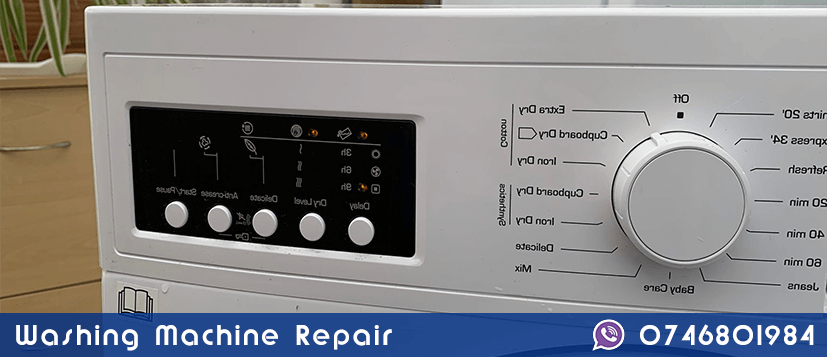Reasons for Loud Noises in a Washing Machine, and How to Fix Them
A washing machine is designed to operate smoothly and quietly. However, if it starts making loud or unusual noises, it could signal an underlying problem. Identifying the cause of these noises early can help you prevent further damage and avoid costly repairs. This article explores the common reasons for loud noises in washing machines and provides solutions to fix them effectively.
1. Overloading the Machine
One of the most common reasons for a noisy washing machine is overloading. Washing machines are built to handle a specific load capacity, and exceeding this limit puts excessive pressure on the drum and other components, causing them to make noise.
Fix:
- Reduce the load to within the machine’s specified capacity.
- Distribute the laundry evenly in the drum to ensure balance during operation.
“Overloading not only causes noise but also shortens the lifespan of your washing machine by overstraining its components.”
2. Unbalanced Load
When laundry is not evenly distributed in the drum, it can cause the washing machine to become unbalanced, leading to loud banging or thumping noises during the spin cycle.
Fix:
- Pause the machine and redistribute the laundry evenly in the drum.
- If your machine has a self-balancing feature, ensure it is functioning correctly.
“Always check the distribution of clothes before starting the washing machine to prevent unbalanced loads.”
3. Loose or Worn-Out Drum Bearings
Drum bearings support the drum’s rotation. Over time, these bearings can wear out or become loose, leading to grinding or rumbling noises. This issue is more common in older washing machines.
Fix:
- Inspect the drum bearings for signs of wear or looseness.
- Replace the bearings if necessary, as continued use can cause further damage to the drum and motor.
“Replacing drum bearings promptly can save you from more expensive repairs down the line.”
4. Faulty Motor or Drive Belt
The motor and drive belt are critical components responsible for the drum’s movement. A worn-out belt or a faulty motor can create squealing or grinding noises.
Fix:
- Check the drive belt for wear and tear, and replace it if necessary.
- Inspect the motor for faults and seek professional repair if needed.
“A well-maintained motor and drive belt ensure smooth and quiet operation of your washing machine.”
5. Clogged or Faulty Drain Pump
The drain pump removes water from the washing machine during cycles. If it becomes clogged with debris or develops a fault, it can produce loud rattling or buzzing noises.
Fix:
- Disconnect the machine from the power supply and inspect the drain pump for clogs.
- Remove any debris and test the pump. If the noise persists, consider replacing the pump.
“Regular cleaning of the drain pump can prevent clogging and ensure efficient water drainage.”
6. Worn-Out Shock Absorbers
Shock absorbers reduce vibrations during the washing machine’s operation. If these become worn or damaged, the machine may produce banging or thumping noises, especially during the spin cycle.
Fix:
- Check the shock absorbers for signs of wear.
- Replace worn-out shock absorbers to restore stability to the machine.
“Shock absorbers play a crucial role in minimizing noise and vibration, particularly in high-speed spin cycles.”
7. Foreign Objects in the Drum or Pump
Small items such as coins, buttons, or hairpins can get trapped in the drum or pump, causing rattling or clinking noises during operation.
Fix:
- Inspect the drum for any foreign objects and remove them.
- Check the drain pump filter for debris or trapped items.
“Always check pockets before loading laundry to prevent foreign objects from damaging the washing machine.”
8. Loose Screws or Components
Over time, screws or other components in the washing machine can become loose due to vibration, leading to rattling or banging noises.
Fix:
- Inspect the machine’s external and internal components for loose screws.
- Tighten any loose parts to eliminate the noise.
“Routine maintenance checks can help identify and fix loose components before they cause further issues.”
Loud noises in a washing machine are not just an inconvenience but also a potential sign of underlying issues. By identifying the cause—whether it’s an unbalanced load, worn-out components, or foreign objects—you can address the problem promptly and keep your washing machine running efficiently. Regular maintenance and proper usage are key to minimizing noise and extending the life of your appliance.
“Investing in timely repairs and maintenance is the best way to ensure your washing machine operates quietly and efficiently for years to come.”

